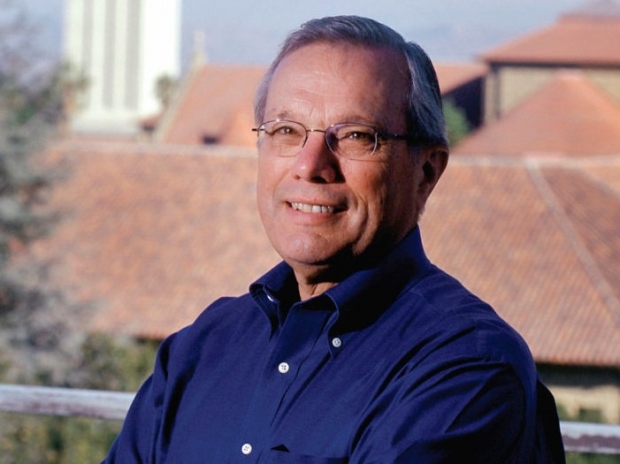Parkinson was in charge of the Global Positioning System (GPS) project 22 years ago when he was working for the US Department of Defense (DOD).
Parkinson's first job was delivering newspapers, but he had a thing about maps. When he graduated from the US Naval Academy in 1957 with a Bachelor of Science in Engineering, he joined the Air Force to study navigation systems. In 1960, when his superiors saw his engineering potential, they sent him to the Massachusetts Institute of Technology to pursue graduate studies. He became a protegee of Charles Stark (Doc) Draper, the father of inertial navigation, who was teaching at MIT at the time. Draper was the lead engineer developing the computer systems for NASA’s Apollo program.
“My appreciation for control theory, inertial instruments and navigation accuracy were all fostered by Doc and his lab,” Parkinson said. “Without that background, it is very unlikely that I would have been involved in GPS, gunships, or eventually a tenured professor at Stanford. While the Naval Academy was a good solid engineering school, I had to shift gears when I got to MIT.”
After graduating from MIT in 1961 with an MS in aeronautics, Parkinson continued his studies at Stanford, where, in 1966, he received a PhD in aeronautics and astrophysics. One of his first inventions was a sensor that could tell the position of the rotor relative to the desired axis. The technology is still in use today by inertial navigation systems.
In 1972 he moved to the Air Force inertial guidance section to work on the Air Force 621B program, the genesis of GPS. Initially, he wasn’t interested and refused the offer because the programme was considered absolutely dead in the water. So Parkinson agreed on condition that he be named program manager with full authority. He took over the 621B in mid-1973.
It took over 20 years for the initial GPS system to become operational. Many of their challenges related to overcoming the limitations of technology at that time, such as the inability to modify CDMA radio signals to allow both a civilian signal and a protected military one, as well as not having light atomic clocks that could handle space radiation on the satellites.
Parkinson always said he didn't want the title of “father of GPS”. He says he was the chief advocate, architect, and a developer, but not the inventor. When Bradford Parkinson retired from the Air Force in 1978, he carried on his work on GPS from the private sector. He served as vice president of Rockwell International Space Systems and vice president of Intermetrics.




